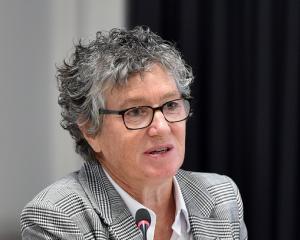Dr Ryder (43) grew up in Dunedin, attending Kings High School, and also began his university studies at the University of Otago in 1985, before transferring to Canterbury University to gain a bachelor of science degree in astronomy with honours.
A former member of the Dunedin Astronomical Society, Mr Ryder was back in Dunedin at the weekend as a keynote speaker at the Royal Astronomical Society of New Zealand's annual conference, which previously had not been held in the city for 35 years.
Yesterday, he gave a public talk on "CSI Supernova" at the conference, which was attended by about 100 people.
Supernovae are phenomena resulting from the explosive death of massive stars, some of those explosions caused by internal core collapse.
Dr Ryder now heads the Australian Gemini Office, at the Anglo-Australian Observatory, which co-ordinates Australia's use of several large overseas telescopes, including in Hawaii and Chile.
Just as detectives involved in crime scene investigation work, popularised by US television shows of that name, used clues to try to "explain the circumstances about a person's death", astronomers also used other clues to learn more about a star's death, he said in an interview.
He noted that some core-collapse supernovae were effectively "missing" in distant starburst galaxies where they were expected to be plentiful.
However, recent international research showed that huge amounts of dust found in some of these galaxies blocked the light emitted from some supernovae, making them extremely hard to detect.
He and other international scientists, including colleagues in Finland, elsewhere in Europe and South Africa, had recently used an 8m Gemini telescope in Hawaii to discover, in a galaxy 250 million light years away, the first supernova to be revealed using a "laser guide star adaptive optics" system.
A laser beam is used to hit sodium atoms about 90km up in the stratosphere, causing them to glow, with analysis of the subsequent image being used to correct distortions caused by the Earth's atmosphere when observing distant galaxies.
"This is really cutting edge stuff," he said.
Conference organising committee chairman Ash Pennell said the three-day conference which ended yesterday, had been successful, with Dr Ryder's "brilliant" talks among the highlights.












